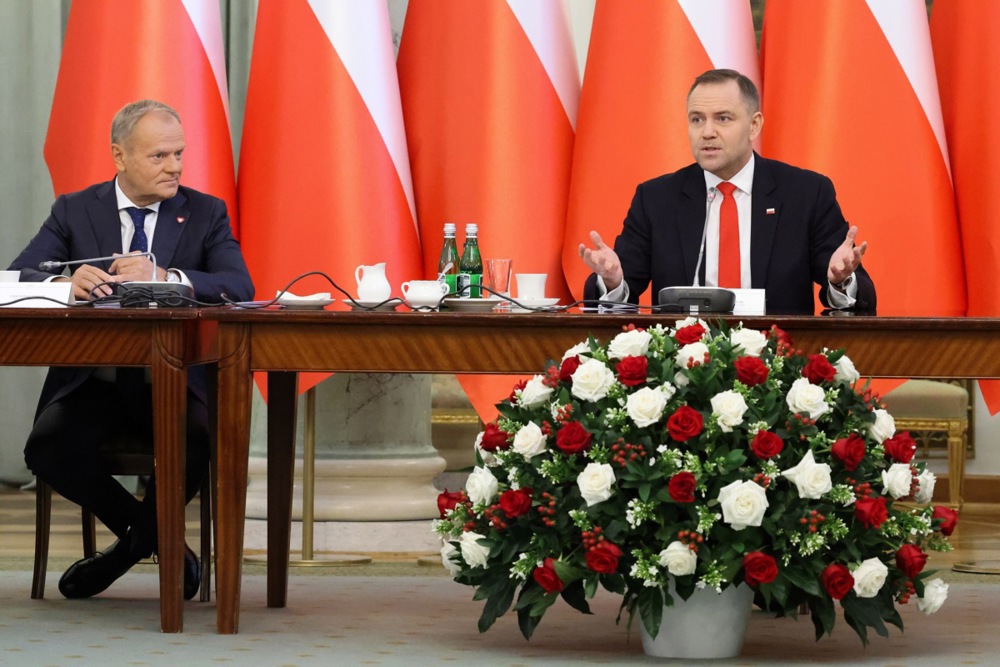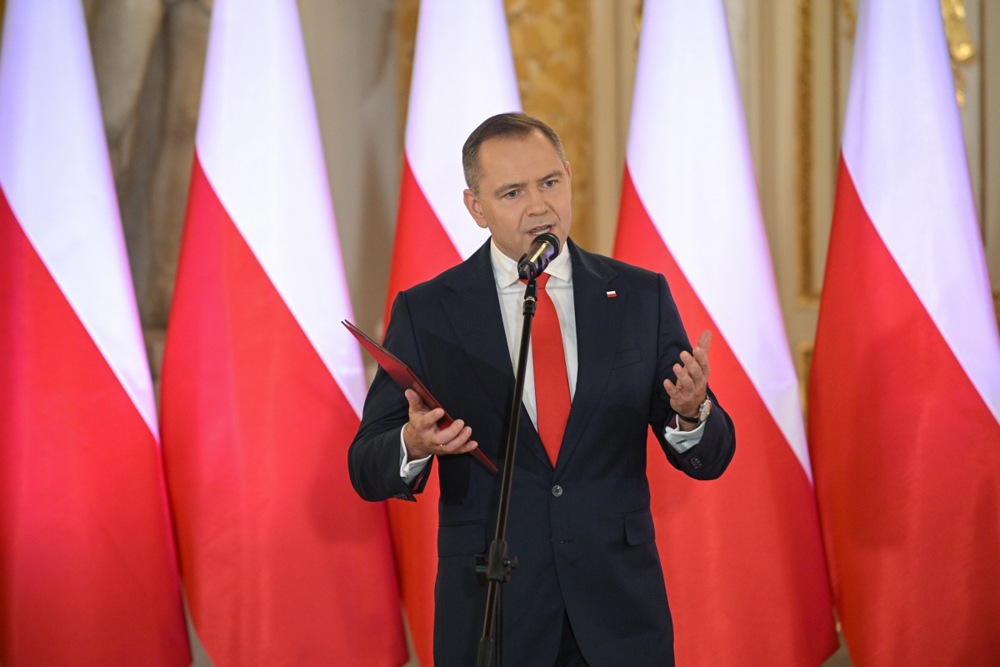Polish Prime Minister Donald Tusk’s centre-left coalition has lost a parliamentary vote on legislation proposed by the opposition Conservatives (PiS)-allied President Karol Nawrocki.
It came after nine MPs from one of the coalition partners chose on September 26 to support Nawrocki and compromise with the head of state on reducing support for Ukrainian migrants.
The legislation proposed to return to the central airport project as pursued by the previous PiS government, which was scaled down by Tusk’a government. The project consists of the creation of a mega-airport close to Warsaw with a rail and road hub to ease access from all parts of Poland. Tusk’s party when in opposition opposed the project claiming it was ‘grandiose’ and unnecessary, given the expansion of existing Polish airports, but after reaching office his government reduced the number of rail links planned and lengthened the time scale for the construction of the new airport.
Nine MPs from the “Poland 2050” centrist party, including its leader, founder and the Speaker of Parliament Szymon Hołownia, decided to back the President’s stance, while 12 more abstained. That was despite the fact that the coalition government had agreed to fully oppose Nawrocki’s legislation.
As a result, Tusk’s government lost the ballot on the first reading of the bill 211-203 and the legislation will now go to the committee stage.
Tusk responded angrily saying he “does not accept this voting”, which he added “bodes very poorly for the future with regard to the way Poland 2050 and Speaker Hołownia are behaving”.
Sources close to him say Tusk feels the “present ruling coalition may be nearing its end” and that he was “close to announcing the removal of Poland 2050 from the government”.
That would mean his administration could only continue as a minority government or that he would have to resign.
Hołownia has tried to calm the situation, telling reporters his MPs had approved the President’s bill because he “believes, as a member of parliament, that we must be extremely cautious about rejecting bills at first reading”. He added, though, it was unlikely his party would support the bill in its current shape in committee.
“This does not mean adoption of the bill,” he said. “We do not pass bills with the opposition, only with the ruling coalition.”
At the same session of parliament, Tusk’s ruling majority was also divided over the issue of religious education.
The centre-right Polish People’s Party (PSL) deputies voted together with the opposition and some Poland 2050 MPs to allow a bill increasing the hours of religious teaching in schools through to the committee stage.
Nawrocki won another battle with Tusk when, also on September 26, he signed legislation that will ensure continued support for Ukrainian refugees in Poland. It makes access to certain social benefits, though, conditional upon being in employment and restricts access to some health treatment.
According to Nawrocki’s chief of staff Zbigniew Bogucki, the legislation ends the “completely incomprehensible and unacceptable situation” of foreigners receiving support at taxpayers’ expense “without contributing themselves”.
Bogucki added, though, that it “is the last bill of this kind that President Nawrocki will sign, concerning this form of assistance to Ukrainian citizens” . He added that once the support expires in March, “We need to switch to normal conditions, ie treating Ukrainian citizens in Poland in the same way as all other foreigners.”
The decision taken by Nawrocki resolved the dispute with the government during which the President vetoed a previous bill extending support for Ukrainian refugees. He instead then presented his own measures, which the government for the most part accepted.
Tusk’s administration, a broad coalition of his own centrist Civil Coalition (KO), Poland 2050, the Polish People’s Party (PSL) and the Left Party, has struggled to maintain unity on issues such as abortion and LGBT rights and has also disagreed over tax and housing policy.
Tusk and Hołownia clashed when the PM pressured the Speaker to stop Nawrocki taking his oath of office on the grounds that there were doubts about the validity of the court green-lighting the election result and claims of irregularities in vote counting.
According to the coalition agreement, Hołownia is to retire from his position as Speaker in mid-November to be replaced by the leader of the Left Party Włodzimierz Czarzasty.
On September 27, Hołownia announced that early in the New Year he will step down from his position as leader of Poland 2050. Portal Onet reported that he is seeking a post with the UN in Geneva.





